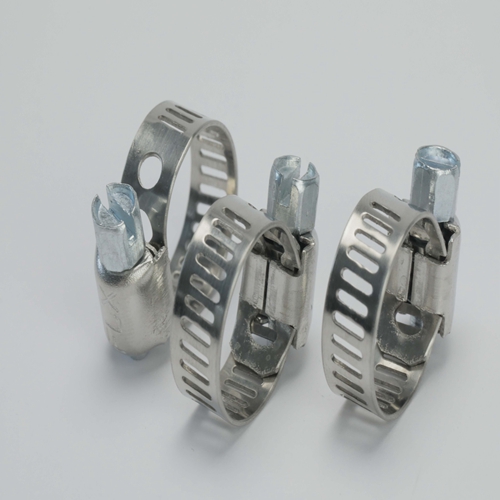- Phone:+86-17331948172 +86-0319-8862898
- E-mail: inquiry@puxingclamp.com
Oct . 05, 2024 15:28 Back to list
Gear Hose Clamp Manufacturing Facilities and Their Production Processes
The Role of Gear Hose Clamp Factories in Modern Manufacturing
In the contemporary manufacturing landscape, the importance of specialized components cannot be overstated. Among these components, gear hose clamps play a crucial role in ensuring the functionality and reliability of various systems. Gear hose clamp factories stand at the forefront of this industry, providing not just products but also innovative solutions to meet the evolving demands of manufacturers.
Gear hose clamps are used to securely fasten hoses to fittings and pipes, providing an essential service in countless applications ranging from automotive to industrial equipment. The design of these clamps allows for a secure fit that can withstand high pressure and extreme conditions. One of the most significant advantages of gear hose clamps is their ability to achieve a uniform distribution of force around the hose, which prevents leaks and maintains system integrity. This makes them indispensable in applications such as fuel systems, cooling systems, and hydraulic applications.
The manufacturing of gear hose clamps involves precision engineering and a keen understanding of materials science. Factories specializing in these components employ advanced technologies to ensure quality and performance. High-grade materials such as stainless steel, carbon steel, and even specialized alloys are commonly used to withstand corrosion, temperature fluctuations, and mechanical stress. The choice of materials plays a critical role in determining the lifespan and reliability of the clamps, which is why gear hose clamp factories invest heavily in research and development.
These factories not only focus on the production of standard gear hose clamps but also on custom solutions that cater to specific client requirements. As industries diversify and innovate, so do their needs for specialized components. Gear hose clamp manufacturers often work closely with design engineers to develop custom solutions that meet unique specifications. This collaboration can lead to the creation of clamps that are optimized for specific applications, ensuring that they perform flawlessly under the unique conditions they will face.
gear hose clamp factories

In addition to product development, gear hose clamp factories are also prioritizing sustainability in their manufacturing processes. With growing awareness of environmental issues, many factories are adopting practices that minimize waste and reduce their carbon footprint. This includes utilizing recyclable materials, reducing energy consumption, and implementing efficient manufacturing practices. By focusing on sustainability, these factories not only contribute to environmental preservation but also appeal to eco-conscious consumers and businesses.
Quality control is another critical aspect of manufacturing in gear hose clamp factories. With safety and reliability being paramount, manufacturers implement rigorous testing procedures to ensure that their products meet industry standards. This involves various tests, including tensile strength tests, corrosion resistance tests, and leak tests, among others. By adhering to stringent quality control measures, these factories can assure their clients of the reliability and safety of their products.
Finally, the global marketplace plays a significant role in the dynamics of gear hose clamp factories. With the rise of international trade, manufacturers are not only catering to local demands but also exporting their products to various regions. This global reach has increased competition but also encourages manufacturers to continuously innovate and enhance their product offerings.
In summary, gear hose clamp factories are integral components of the manufacturing ecosystem, providing essential products that contribute to the efficiency and safety of a wide range of applications. Their commitment to quality, customization, and sustainability not only meets the evolving needs of industries but also positions them as leaders in the manufacturing of critical components. As technology and environmental considerations continue to advance, these factories will undoubtedly play a pivotal role in shaping the future of manufacturing.
-
Heavy Duty Hose Clamp | Premium Durability & Security
NewsAug.01,2025
-
Large Stainless Steel Adjustable American Type Hose Clamp - Hebei Pux Alloy Technology Co., Ltd.
NewsAug.01,2025
-
Large Stainless Steel Adjustable American Type Hose Clamp - Hebei Pux Alloy Technology Co., Ltd
NewsAug.01,2025
-
Large Stainless Steel Adjustable American Type Hose Clamp - Hebei Pux Alloy Technology Co., Ltd.
NewsJul.31,2025
-
Large Stainless Steel Adjustable American Type Hose Clamp - Hebei Pux Alloy Technology Co., Ltd | Corrosion Resistance, High Torque
NewsJul.31,2025
-
Durable Hose Clamps with GPT-4 Turbo Tech | Secure Sealing
NewsJul.31,2025




